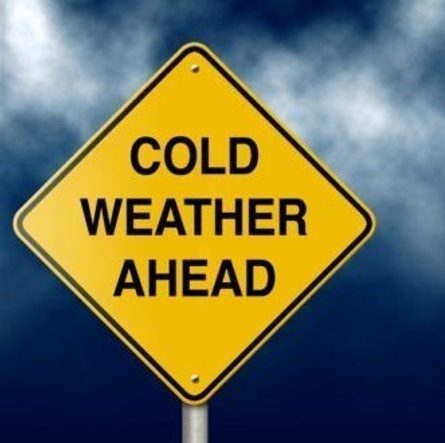With the upcoming fall season soon bringing cooler temperatures, residents will turn on their heating systems for the first time in a number of months. Here are some important tips to consider in preparing homes for colder weather:
Have your heating system professionally serviced. Having your heating system checked is an important safety practice since improperly functioning systems can produce carbon monoxide. UGI recommends your heating system be checked annually to ensure it is operating properly.
Having your heating system professionally cleaned and serviced regularly can also reduce your fuel costs, in some cases, by as much as 10 percent. Servicing your system now also reduces the likelihood of needing emergency service in cold weather.
A qualified service technician will check the following items on your appliance:
- Make sure the pilot light (if the appliance is equipped with one) and thermostat are working correctly.
- Check the fuel pipe and heat exchanger for cracks or leaks.
- Test the efficiency of your heating system (how effectively your furnace or boiler converts fuel to heat).
Clean or replace the filter. One of the simplest and most important ways to keep your heating system running efficiently is to maintain and/or replace the filters as recommended. Filters that are properly fitted and cleaned or replaced regularly can have a significant impact on your energy costs and the quality of air in your home.
Filters should be replaced or cleaned, depending on your type of filter, about every three months. By keeping your filters clean, you will not only have your home better prepared for winter, but you may benefit if you experience fall allergies.
Install a programmable thermostat. According to the Energy Information Administration, more than 40 percent of the cost of home energy bills in the United States go toward heating and cooling.
One of the most effective ways to cut your heating bill while keeping your home warm is to upgrade to a programmable thermostat. A programmable thermostat allows you to automatically adjust your home’s temperature when you’re away or asleep.
Ensure the exhaust flue or chimney is clear of obstructions and in good condition. Have your chimney inspected for any damage that may have occurred during summer storms. Blockages, cracked liners, and other structural damage to chimneys can cause carbon monoxide to enter your home or soot to accumulate outside the liner, eventually leading to a chimney fire.
Anytime you are near your furnace, check for holes in the exhaust flue, particularly where the pipe meets the furnace. Small holes can be patched with foil tape, but corroded flues must be replaced.
Make sure your appliances have proper airflow. If your furnace and the water heater are in an enclosed room or closet, make sure they get plenty of air. Furnace rooms or closets should have door louvers or a duct piped directly to the outside to provide sufficient combustion air.
If you renovated your home recently and enclosed your furnace or water heater in a small room or closet, you should inspect the work carefully to ensure your appliances have proper airflow. Lack of airflow will cause your system to function improperly and could cause a dangerous build-up of carbon monoxide in your home.
Seal air leaks. Small air leaks around windows, doors, pipes, recessed lighting, and electrical outlets can add up to a significant loss of heat. Sealing air leaks can significantly reduce your heating bills.
Seal door leaks with weather stripping or a door sweep. Window leaks can be sealed with caulking. Pay particular attention to the attic hatch or pull-down stairs as well as any interior wall top plates in the attic, as these areas leak frequently.
Re-arrange your furniture. Your home’s return-air vents ensure that the air inside your home circulates properly. If vents are not allowing air to flow because of an obstruction, your heating system will work harder to heat your home, leading to higher energy bills. Examine your vents and ensure that air can pass through. Clear obstructions such as clothes, toys, and furniture from in front of vents. Similarly, dirt, dust, and pet fur reduce the effectiveness of ducts and registers that distribute heat. Make sure furniture, curtains, and blankets are not near or resting on your heat registers. Clean these elements regularly and make sure furniture and drapes don’t inhibit the airflow.
If you have radiators or baseboard heaters in your home, moving your furniture away from these heat sources can help evenly distribute heat and prevent heat from being wasted. Placing a sofa or chair in front of a radiator can block the heat and make the room feel cooler. Rearranging your furniture is a quick and easy way to improve your home’s heating without spending any money. By opening up the space around your heat sources, you can distribute heat more evenly and make your home feel warmer.
Remove all flammable objects from around your furnace and water heater. Move combustibles that may have piled up over the summer, such as paper, books, blankets, and decorations, away from heat sources. These materials should be at least 36 inches away from your furnace or water heater.
Call UGI or 911 if you detect the odor of gas. An odorant that smells like rotten eggs is added to natural gas to assist in detecting a gas leak. If you smell the odor of natural gas, leave the building immediately, taking everyone with you and leaving the door open. Do not use the phone, light a match, or switch anything on or off. Once in a location where the odor of gas is no longer present, call 911 or UGI from your cell phone or neighbor’s home. UGI’s emergency response number is 1-800-276-2722. UGI will send a service technician to investigate the odor immediately. Emergency response is available 24 hours a day, every day. There is no cost to investigate a report of a gas leak.
Check to ensure all smoke detectors and carbon monoxide detectors in your home are working properly. Make sure detectors have fresh batteries. Smoke and carbon monoxide detectors should be located on every floor of your home, and one should be located within each bedroom.
Do not overload extension cords. As you start to use electric blankets, holiday decorations, and additional area lights with earlier nightfall and cooler temperatures, do not overload extension cords. Cords that are overloaded or coiled when in use can overheat and cause a fire.
Inspect all electric cords in your home for signs of damage or wear (cracked/frayed/bare wires, loose connections, etc.) before plugging them in and never use a cord that feels hot to the touch. Do not nail or staple a cord to the wall or floor. In addition, do not pinch cords in windows or doors, under heavy furniture, or through walls or ceilings. Make sure the cord is rated for your intended use and meets the needs of the appliance or device it is plugged into.
Check for rebates. Most UGI natural gas and electric customers can qualify for a number of rebates associated with the installation of energy-saving measures in their homes or businesses. These rebates cover items such as a smart thermostat, energy-saving measures such as insulation, or the installation of an ENERGY STAR-certified heating system. Visit www.ugi.com/savesmart for full program details.
UGI Utilities is a natural gas and electric utility with headquarters in Denver, Pennsylvania. UGI serves more than 740,000 customers in 45 Pennsylvania counties and one county in Maryland. Additional information is available on the UGI website at www.ugi.com.




